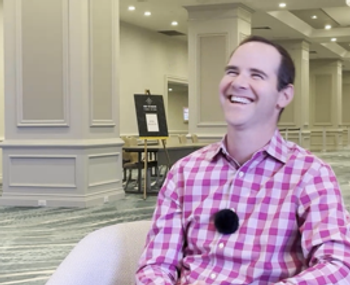
DSM-5 Against Everyone Else: Research Types Just Don't Understand The Clinical World
So far, opposition to DSM-5 has been expressed by at least 11 organizations.
So far, opposition to DSM-5 has been expressed by the following organizations:
. British Psychological Society
. American Counseling Association
. Society for Humanistic Psychology (APA Division 32)
. Society for Community Research and Action: Division of Community Psychology (APA Division 27)
. Society for Group Psychology & Psychotherapy (APA Division 49)
. Developmental Psychology (APA Division 7)
. UK Council for Psychotherapy
. Association for Women in Psychology
. Constructivist Psychology Network
. Society for Descriptive Psychology
. The Society of Indian Psychologists
And there is more. An editorial by the Society Of Biological Psychiatry wondered whether DSM-5 was necessary at all. The community of personality disorders researchers is virtually unanimous in its opposition to the DSM-5 personality disorders section. There has also been widespread opposition to the sections on somatic, autistic, gender, paraphilic, and psychotic disorders.
Last week, a petition was posted quietly by several divisions of the American Psychological Association. It demands reform of the DSM-5 process and the elimination of a number of its most risky and ill-conceived proposals. The petition is gaining growing support and has already been signed by almost 3000 people. It can be accessed at
Strikingly, there seems to be virtually no support for DSM-5 outside the very narrow circle of the several hundred experts who have created it and within the leadership of the American Psychiatric Association (APA), which stands to reap large profits from its publication. There is no group and precious few individuals outside of APA who have anything good to say about DSM-5. And even within the DSM-5 Work Groups and the APA governance structures, there is widespread discontent with the sloppy process and considerable disagreement about the highly controversial product.
How did this enormous disconnect occur between DSM-5 and its potential users? Unfortunately, the preparers of DSM-5 are an extremely inbred group of researchers who have little real world clinical experience. Their perspective clashes with the needs of the more than 500,000 thousand mental heath clinicians who are its major users (along with probably an equal number of primary care physicians). Of the mental health workers, about 202,000 are social workers; 120,000 are mental health counselors; 93,000 are psychologists; 75,000 are psychiatric nurses; 55,000 are marriage & family therapists; 38,000 are psychiatrists; and an unknown additional number are occupational therapists, educators, experts in forensics, researchers etc.
So, we have a growing and so far totally unbridgeable gulf between the researchers who have prepared DSM-5 and the clinicians who will have to use it. The experts, if they see patients at all, tend to do so only in their ivory tower of university research clinics. Clinicians have to apply the DSM under more difficult real life circumstances and often have a much clearer understanding of how DSM-5 will be misused-- its loose diagnostic criteria risking the excessive use of potentially harmful medication.
The preparer/user disconnect was exacerbated unnecessarily because the DSM-5 proposals were developed in relative secrecy and with great resistance to much needed outside influence and perspective. Because DSM-5 has lacked the openness and flexibility needed for self-correction, it has retained numerous really bad ideas that should have long since been abandoned.
Amazingly, the results of DSM-5's internal scientific review are meant to be kept confidential. And the Work Groups have become stubbornly locked into their homegrown suggestions, with great resistance to making any changes at all, even for suggestions that simply make no sense. No surprise that the current draft of DSM-5 is essentially equivalent to its very first draft. which was filled with fatal flaws.
The experts are well intentioned and are making very bad decisions for the purest of reasons. Their conflict of interest is purely intellectual, not financial. Experts overvalue their pet diagnoses and their own research --and greatly underappreciate how an idea that works well in their own research setting may be disastrously misunderstood and misused in clinical practice.
Everyday clinical practice is much tougher than work in a research clinic-- the patients are more heterogeneous, there is less time, the evidence is often equivocal, and the clinicians are necessarily generalists-- not highly trained to detect the fine points of the new diagnoses DSM-5 that were developed in hothouses. The DSM-5 team has not been charged to consider the possibly quite harmful unintended consequences of its proposals on clinical practice and it does not have the expertise nor has it shown the inclination to do so.
An independent outside review of DSM-5 proposals is crucially needed and must be started now before DSM-5 is written even further in stone. The DSM-5 expert's suggestions are for the most part based on very little scientific evidence (too often largely on their own personal research findings). Strikingly, none of the suggestions has yet received any systematic study in real life clinical environments.
This is obviously no way to create a diagnostic system that needs to be used widely by clinicians with very varying interests, training, and patient populations.
If DSM-5 remains at war with its users, it won't be used. Why buy an expensive book if it is likely to be more harmful than helpful and when the official ICD-10-CM codes will be freely available on the internet? DSM-5's stubborn refusal to abandon risky suggestions is a foolish gamble not only for clinicians and patients, but also with its own future.
Newsletter
Receive trusted psychiatric news, expert analysis, and clinical insights — subscribe today to support your practice and your patients.







